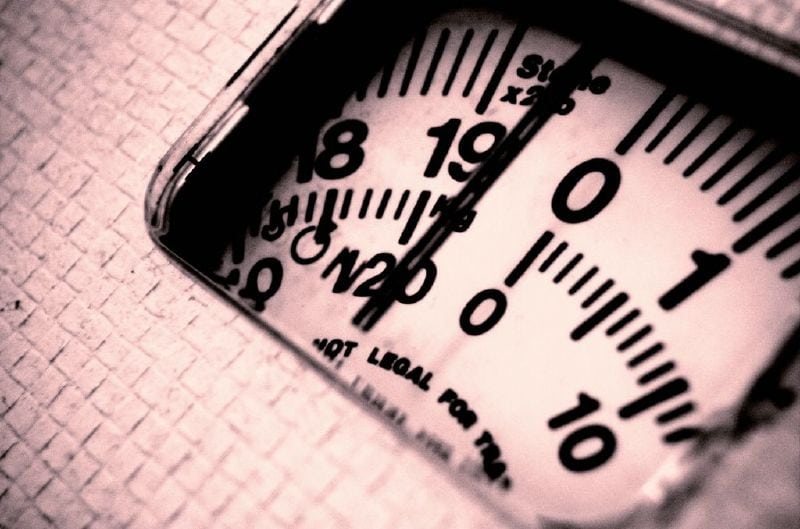You shouldn’t dismiss your hormones when trying to improve your health and maintain a healthy weight. Check out how your hormones play a big part in your weight loss battle.
Why Hormones?
When you go on a wellness plan to increase your health or a diet to lose weight or fat, you’re either putting your body in a calorie surplus or deficit. That means you’re eating more calories or less calories in order to force your body to a certain weight, either using up its stored fats or collecting more fats.
And everyone’s fat is stored in different places. But the thing is, our bodies are not a fan of losing weight. In fact, your body will do everything in its power to stop you from losing weight. One huge but often-overlooked reason for many health challenges and weight-loss resistance involves hormonal imbalances. Many hormones affect our weight and health. The big disruptors are: leptin, ghrelin, thyroid, cortisol and your sex hormones and once we understand their natural behaviors, we can make them our allies.

Our South Asian Appearance Can Be Deceiving
In South Asian cultures weight can be very deceiving. We can be in a normal weight category but be very unhealthy and culturally we have a lower threshold for what’s considered overweight. We all have that aunty that reminds us we have gained 10lbs and gotten fat. This is partly because of the foods we cook and eat, the many family and cultural gatherings we attend and our social norms of being polite and loving our aunty’s food.
We, as a culture tend to have a higher body fat percentage than other cultures; regardless of the fat percentage we could look thin. Where South East Asians carry their weight matters, too. We (both men and women) tend to collect our excess weight around our middles which puts us at risk for obesity, cancer and heart disease. And as a culture many South East Asians do not do much cardio in their adult and elderly years. An emphasis on physical activity doesn’t begin early enough in South Asian cultures this could be in part that many South Asian families prioritize cooking, family time, academics, cultural activities over exercise, fitness and sports.

Hormonal Breakdown
Ghrelin: Is a hunger hormone; produced in the stomach. High levels of this hormone will make you very hungry and makes your stomach growl.
Leptin: Is also a hunger hormone, it helps your body regulate energy so you stay fuelled. Not only does leptin control your hunger, but more importantly, it controls satisfaction. When it comes to leptin levels the higher the better. High levels of leptin mean your satisfaction is high and cravings are low. Working in tandem with leptin, this how hunger regulates appetite. When your stomach nears empty, it bellows to your brain that it’s time to chow down on some naan or chapati. After you’ve munched your lunch, your stomach will relax for about three hours. But when trying to lose weight, your body thinks it’s starving and tries to reinstate its “set point” so it ramps up ghrelin production, which in turn increases hunger.
Cortisol: High levels of cortisol is associated with hard-to-lose belly fat, sugar cravings, and lousy sleep. This is another source of weight-loss resistance! Stress! Yes, you actually can think yourself fat or think yourself thin, and science proves it. Stressful thoughts activate metabolic pathways that cause weight gain and insulin resistance. Sometimes when I am stressed I can actually feel the cortisol running around in my body.
Thyroid: This regulates metabolism and metabolism is determined by measuring the amount of oxygen used by the body over a specific amount of time. Low thyroid causes an increase in other hormones that lead to weight.The easiest way to think about this is to realize that everything in your body is connected. When your thyroid is not balanced it throws the other hormones in your body also off balance. When the thyroid gland is sluggish (hypothyroidism), it can rob you of energy causing weight gain. When it becomes overworked (hyperthyroidism) it produces too much hormone, it can cause racing heart and weight loss.
Estrogen and Testosterone: The imbalance of these sex hormones can also cause weight problems. Having too much estrogen causes weight gain whether you’re a man or a woman. Low estrogen levels stimulates appetite and uses the same biochemical pathways in the body as leptin, a hormone released by fat that, when activated, pushes your “hunger button” and tells you that you need more naan!
For men who want to get to a healthy weight managing and preserving your testosterone is very important. Men depend on the male hormone for everything from building muscle to growing facial hair to having a deeper voice; but we can also add managing weight and managing your metabolism to that list. Research shows that men who have low testosterone have a higher percentage of body fat than men with high testosterone levels.

So How Do We Take Care Of Our Hormones?
Have one cheat meal per week! By indulging in one high calorie meal and varying your calorie intake your body won’t have a chance to adapt and adjust. Yeah you heard me right! Eating a high-calorie meal once a week will actually help your metabolism. It might seem crazy, but by occasionally boosting your caloric intake, you encourage your body to burn calories more rapidly instead of allowing it to adjust completely to the lower calorie lifestyle. One weekly cheat meal that is higher in calories and carbohydrates can help raise leptin levels and lower ghrelin. And set the clock on your cheat meal. If you plan on eating your cheat meal at home or at an event it’s really important to set a window of time. Give yourself an hour to enjoy dinner and then your cheating is done when the window closes. Without planning your cheat window you run the risk of overeating.
Limit or remove alcohol from your diet or wellness plan. Excess alcohol can compromise liver and kidney function, which creates hormonal imbalances, high triglycerides and fatty liver. Alcohol throws your hormones into loops meaning up and down at speeds that are not heathy. A recent study at USC reported that alcohol in women reduces metabolism by more than 70%, and the over consumption of alcohol in men reduces metabolism by 50% in men.
Exercise, workout and get moving. Exercisehelps balance the sex hormones, reducing estrogen and increasing testosterone, which helps you lose fat and build muscle and lowers cortisol. My favorite ways to reduce stress and lower cortisol include running, spending time at the gym, yoga, meditation, deep breathing.
Choose foods that will balance your hormones. You can add fish oil and daily vitamins, both have been proven to help lower cortisol. Your thyroid also needs specific nutrients to run optimally including selenium, zinc, iodine and omega 3 fats. Some of my favorite ways to balance estrogen naturally include acupuncture, regular exercise and a good old fashioned orgasm. You can also add flax seeds to your diet (I throw them in breakfast porridge and smoothies), and supplement magnesium. Men and Women both need to eat enough protein and enough healthy fat, lift some heavy weights once in a while, and don’t do things that make you crazy or stressed out so no to that 10th family function of the year … It may also help to eat some oysters every now and again, or otherwise to make sure you’re getting enough zinc.
Now that you have a clear understanding of hormones this will definitely help you get on the right healthy track!
*As with all health tips make sure to see your doctor before you undertake any changes in your dietary regiment.
Main Image Photo Credit: www.possibilitychange.com
Nadine Afari
Author
Our Guest Fitness Expert, Nadine Afari (@fitthoney) received her Masters in Science degree from The University of Toronto then relocated to sunny California to accept a job as a health researcher for The University of Southern California. She has been studying health and medicine for 15 years at som...














































































































